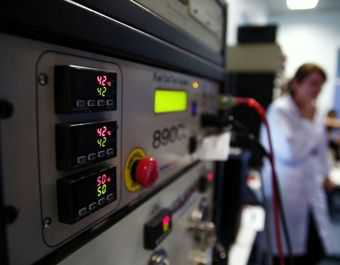Striking a balance between too few and too many conferences is difficult, but it is essential that academics fit them into their schedule, argues Itir Toksöz

Last month I was invited to a conference in Kuwait to deliver a speech. I was given very little notice. After a speedy preparation of three to four days I made it to the Ataturk international airport in Istanbul. As I handed in my passport to be checked, the officer looked at my passport, smiled at me and said, “I was the one who processed your passport the last time you went abroad.” It was only about a month ago that I had been in Poland for the Erasmus programme. I was surprised that he remembered me, and it made me question the frequency of my conference and lecture-related travelling.
Striking a balance between too few and too many conferences is difficult. Some argue that if you travel to conferences too often, you run the risk of missing out on your primary duties to your institution. Some on the other hand argue that it is a way for an academic to enrich themselves. I am of the second opinion.
In my view, when an academic attends few conferences, his networking sphere shrinks; his awareness of what his colleagues do, the new trends in his field and research agenda (if one targets a conference for taking up new research) are all negatively affected. I would doubt an academic who is not eager to engage in such scholarly exchanges.
I always get new ideas for research while I am at conferences. This is where I am introduced to new ideas, find challenging brains in a meeting of the minds, and enjoy myself as an academic; all of which have a positive impact on my professional self-confidence. At the university, where we are caught up in the academic routine, we hardly ever find the chance to applaud our successful peers and we often miss a pat on the back for doing our jobs correctly. At conferences, we are applauded for the work we do and more importantly, we are given feedback, especially a good critique of our work, or we meet people who can later provide us with such critique to make our work better. Academic conferences are where I have made most of my friends from within my field.
Universities often do not realise that when their faculty members travel to conferences and present successful papers, it is also publicity for the institution. That is one criterion we use to judge the level of different institutions: by the quality of their faculty members. Universities fail to realise that while the academic may not be present on campus, she is still working while at a conference.
Moreover, as I am in the field of international relations, it is always a learning opportunity for me to travel to new countries where I add to my expertise. Even when I travel to cities within Turkey, it allows me to increase my knowledge about my own country. Needless to say that it is not only the IR scholars who need to have a better understanding of the world; conference travelling is an enriching experience for all academics.
Despite the advantages, one needs to be selective. When one attends too many conferences then the physical fatigue shows up, the quality of the papers presented may decrease, the same paper may be presented at multiple conferences and a discomfort occurs within one’s home institution from being away too frequently. These complaints are not groundless and should be taken seriously. I try to prioritise conferences during the times when classes are not in session. But even this principle is flexible and can be bent for an important conference in the middle of the year. An academic mind needs to be challenged and nourished, and conferences are the best opportunity for an academic to get both.
Itir Toksöz is vice dean of the Faculty of Economic and Administrative Sciences and assistant professor of international relations at Dogus University in Istanbul. She is also a founding member of the editorial collective at University of Venus.
via Why speaking at conferences is essential for academic professional development | Higher Education Network | Guardian Professional.





